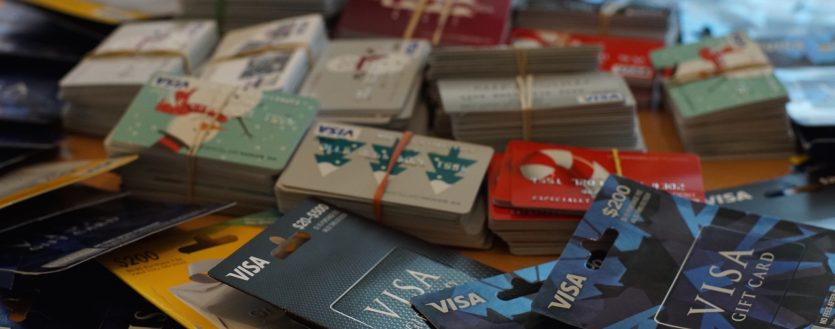
Rose Colored Glasses
I just finished speaking on a (Manufactured Spending) panel at FTU in Minneapolis this past weekend. The room was filled with a variety of people, some who have never done any manufactured spending to those doing comfortably over six figures worth each month. In general it seemed like most of the audience did not do any manufactured spending (MS), but that they were eager to try it. Our panel talked on a few central MS related topics but answered questions from the audience most of the time.
Reconsideration
If I had to do the talk over, I would guide most people away from manufactured spend, especially when it comes to doing larger, consistent amounts (as in $40k-$50k and above per month). Points and miles conferences often hype and promote the benefits of manufactured spend, but don’t spend enough time on the downsides. Heck, one of the speakers in another talk actually advised the audience to deposit small amounts of money into different bank accounts. That’s definitely not something I’d recommend, as that advice is one of the definitions of money laundering – and the speaker is a CPA!

Manufactured Spend: choose wisely
Real Risks That You Need to Consider
There is a saying in the MS world: If you’re not getting shutdown, then you’re not trying hard enough. For most people that probably sounds pretty frightening, and it should. Here are 10 reasons why I think manufactured spend is not for everyone:
1. The Float – this is the time from when you make a charge (of debit cards, gift cards, or other cash like instrument) until your able to recoup that money and pay off the charges. Whether you purchase these online, buy in person, or invest via Kiva or other method, the float of thousands of dollars can be discouraging, nerve wracking, and even dangerous for some. I know a lady who MS’s to pay her debt, basically continuously cycling her credit line to try and avoid more interest on her large medical debt. The issue is that now she has medical and credit card debt – and without perfect timing, things could get very uncomfortable for her financially.
2. Shut Down and Manual Review – sometimes if your account seems strange to a bank, a manual review of your account will be done to look at your activity more closely. Eyes on your account can be the beginning of the middle of the end if you’re an MSer, and account closure could be the next step. I know more than several people who have had MS related shutdowns, all from different banks.
3. Money Order Deposits – many people don’t like depositing money orders. Even more people don’t like depositing lots of money orders, which is often a component of manufactured spending. Some people get nervous about MS being linked to laundering. MSing debit cards is not laundering, but if the money order component makes you feel uncomfortable, MS (at least with debit cards) is not for you. Banks also don’t like lots of money order deposits, as it cost them money to process them all.
4. Loss of Points – if a bank decides to close your account, most allow people to cash out their points, but it’s possible you may have a fight on your hand in that process. Some points that have been transferred are yours to keep, but bank points are in jeopardy. You can expect to get at most 1 cent per point during a shutdown, which in itself will cost you a lot of money.
5. Lines and Time – some avenues of manufactured spend also generally involves physically driving to multiple stores for different transactions. With that said, many stores at nearly any hour of the day have lines of people, and it can be a painful and long process to deal with sometimes. There’s your time and gas expense too, which few people figure into the per point cost equation. Some people don’t feel safe going to Walmart or their local supermarket carrying around thousands of dollars in live debit cards. I don’t blame them.
6. Frozen Account and Other Assets – ever had your bank, credit card account, or other assets frozen? If you MS with a bank or group of companies, it’s possible to get your assets with them put on ‘hold’ or even frozen as an initial response while a pending investigation was done on their account. A bank could literally have your money locked up and at least for a period of time with no recourse, no contact name, no phone number (just a P.O. Box address) until the investigation is closed. That could be weeks or months. Some chose to lawyer up and fight the account freeze. Sound like a fun experience to you?
7. Present and Future Relationship – if you might buy a house, or need a loan from a particular bank that you’ve been banned from, that relationship might be permanently damaged. It’s possible you can re-open accounts with that bank 6 months+ out, but it’s also possible that your business relationship with that business is permanently toast. You probably enjoy accruing reward points with major banks. If you’re banned from any of those banks, think about the lost rewards that would result from it. No more sign up bonuses, category bonuses, and easy points. You put that in play with MS at any level.
8. IRS Issues and Audits – a friend of mine MS’s roughly $300k a month. Correct, I said $300k. He was visited at his home recently by 2 IRS agents. They sat at his table, while he explained where his substantial daily deposits were coming from. For people involved in higher MS amounts, this concern is a very real possibility.
9. Knowledge – most MS beginners don’t know what debit cards work at what stores, the policies of places selling them, and other bits of information that can slow or disrupt their transactions. Many people stumble through MS initially, making it harder on the stores employees, those people standing in line, and others engaged in MS in their area. Hearing about people bring in a few to several thousand dollars worth of Visa debit (gift) cards that don’t work on Walmart machines happens more than you think.
10. Expense – if you purchase $10k worth of debit cards from a mall or store at a time, that will cost you at least $79 in fees. Tack on money order costs and gas, and you’re at $85-$90 per trip. Factor in your time and the cost per point is easily at or above 1%. If you order debit cards through the mail then that total can be even larger. Just five $10k trips for the month could run you well over $400 – $500 in expense. The costs for manufactured spending debit cards has risen to the point where you are almost forced to redeem for premium cabins and hotel stays because economy flights and regular hotel options aren’t worth the price that you’re paying to MS. I have a friend who spends well over $30k a year (of his own money) to MS. Certainly he earns a lot of points doing so, but that cost is very substantial and one that most people can’t afford.
Conclusion
Reselling is probably easier to “control” for most people as a way of earning points for little or no cost. Reselling on websites like theplasticmerchant.com and others is probably better for most people, because you know in advance what you can buy and sell products for. You can casually do a few hundred or thousand in reselling, whatever works for your time and interest level. Once you get the hang of using the websites to verify the gift cards, it’s a pretty simple process.
Keep in mind that since you’re actually selling something, even if you’re not making a profit, it may be a good idea for you to claim the reselling as part of your taxes. There is also time and effort involved with reselling gift cards (and other merchandise). As I said at FTU, manufactured spend (and reselling) isn’t all duckies and bunnies. There’s often enough time put invested in it to consider it a part time job.
The allure for many people with manufactured spend seems to be the idea of earning points for “free”. Is that possible to do? Yes, it it is. Will most people achieve earning points and miles for free? Absolutely not. More importantly, there are real risks and downsides to participating in manufactured spending that people should know and think about before then hit the gas and go forward with it. I don’t recommend it as a method for earning points (especially en masse) for most people.
